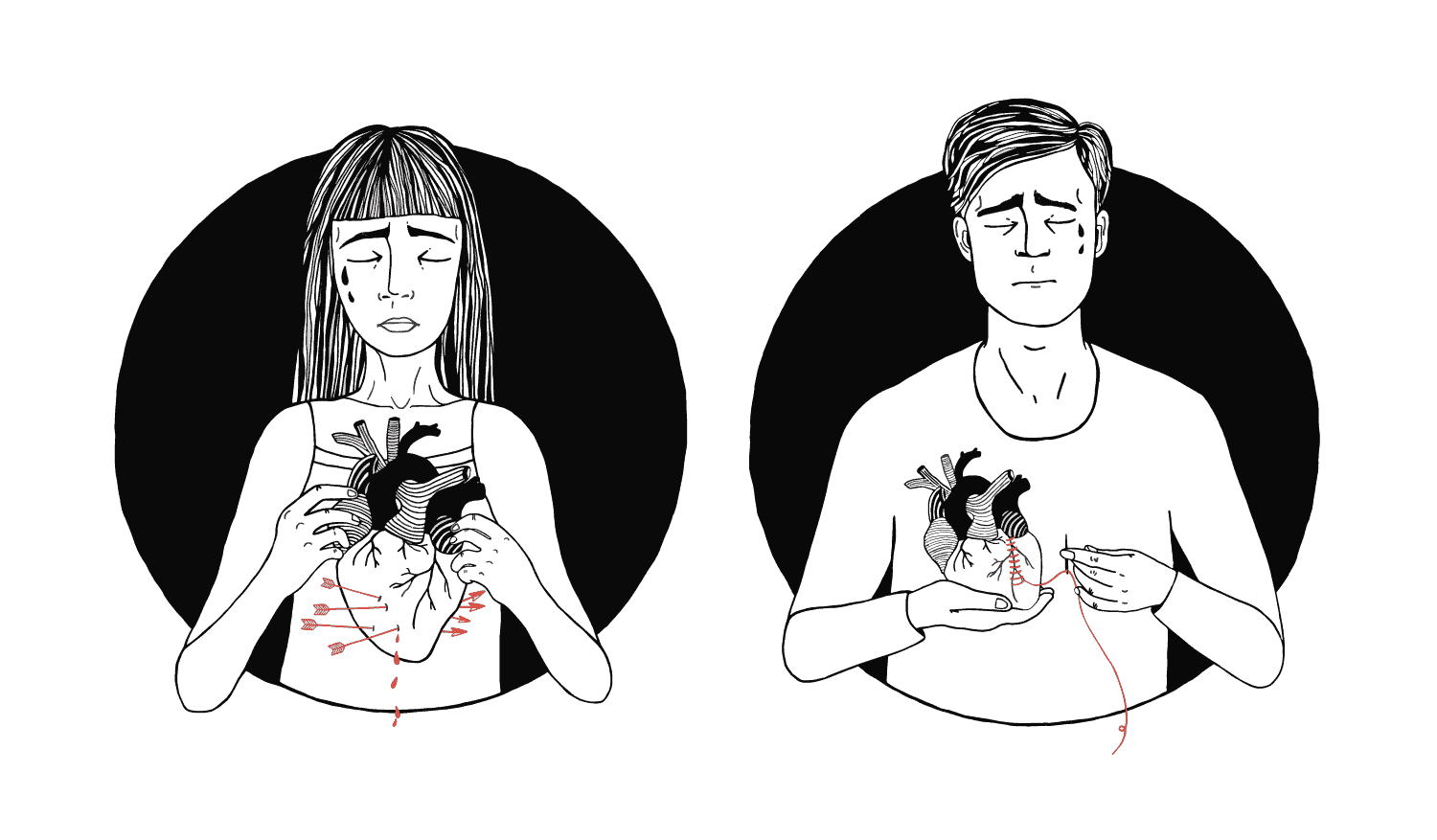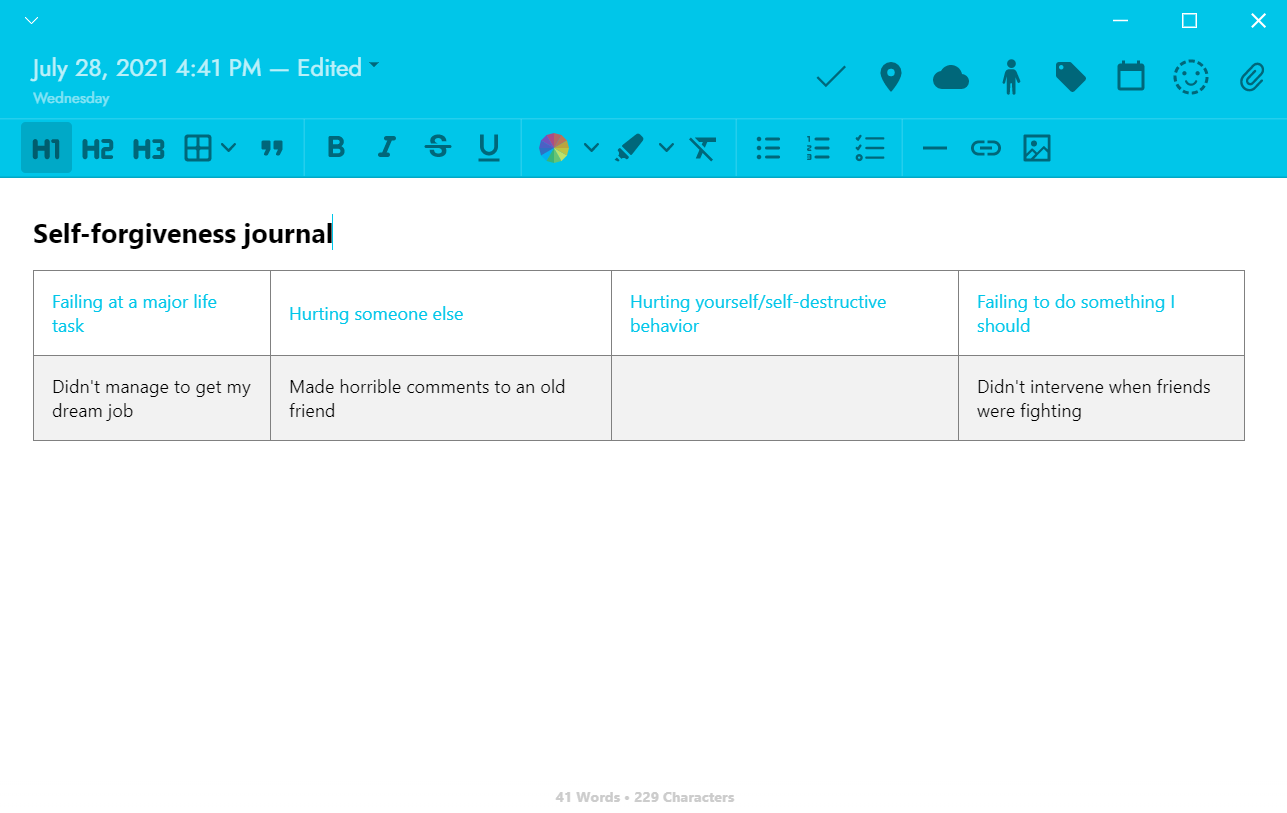How Words Can Heal A Broken Heart
The power and affirmation of positive words can help mend a broken heart. The assurance and clarity you can get from writing your thoughts out is remarkable. Read on to find out more about the power of words and how it can help you.

The power of positive affirmations and its impact on our lives cannot be overstated. The words we speak and the thoughts we hold have a significant influence on our emotions, actions, behaviors, and ultimately, our outcomes and how our lives shape up to be.
Positive affirmations, words, and phrases that are repeated frequently with the intent of influencing the subconscious mind can truly promote positive change. By focusing on positive affirmations, we can change our mindset and reprogram our beliefs, which can lead to a more fulfilling and successful life. Whether you're seeking to improve your relationships, career, health, or any other area of your life, harnessing the power of positive affirmations and words can help you achieve your goals and live your best life.
How Can Positive Words and Affirmations Heal A Broken Heart?
A broken heart can be a devastating experience, and the emotional pain can linger long after the event that caused it. However, positive words and affirmations can be powerful tools in helping to heal a broken heart. For example, repeating phrases like "I am worthy of love and happiness," "I am healing with each passing day," and "I am deserving of a healthy, loving relationship" can help to counteract negative thoughts and replace them with more empowering ones. These affirmations can help to remind us of our self-worth and encourage us to believe that we can find love and happiness again.
When we experience heartbreak, negative thoughts and feelings can flood our minds, leading to a spiral of despair and hopelessness. By focusing on positive affirmations, we can shift our mindset and begin to cultivate a more positive outlook. Positive affirmations can help us to remember that we are strong, resilient, and capable of overcoming any challenge.
In addition to positive affirmations, using positive words and language can also help to mend a broken heart. When we speak positively to ourselves and others, we create an atmosphere of positivity and love. This can help to lift our spirits and create a more supportive environment for healing.

Photo by Lina Trochez on Unsplash
How To Use Words To Heal A Broken Heart
There are several ways you can use positive affirmations and words to overcome negative emotions:
1. First, identify negative self-talk
Start by recognizing negative self-talk or any negative language that you use towards yourself. Write down these negative thoughts or beliefs, and then rephrase them in a positive way. After identifying negative self-talk, identify affirmations that resonate with you and repeat them frequently. For example, if you struggle with self-doubt, you might use an affirmation like "I am capable and competent." Write them down in a journal for your reference.
2. Write yourself a Letter of Forgiveness

Photo by Álvaro Serrano on Unsplash
Writing a letter of forgiveness to yourself can be a powerful tool in helping you heal from past hurts, mistakes, or regrets. Writing a letter of forgiveness to yourself can help you acknowledge and process the emotions that you are feeling. It can provide a safe space to express your feelings without judgment. With a letter, you can also take responsibility for your actions and accept any mistakes you have made. This can be a powerful step towards healing and self-forgiveness.
Writing a letter of forgiveness to yourself can help you let go of any guilt or shame that you may be carrying. It can help you release negative emotions and move towards a more positive and healing mindset. This is also an effective way for you to practice self-compassion. It can help you treat yourself with the same kindness and understanding that you would show to a friend. This can be a step you take towards healing and moving forward with your life. It can help you release negative emotions and focus on a more positive and self-affirming future.
If you want to journal about what you want to forgive yourself for instead of writing yourself a letter, take out a journal or open up a fresh new entry on a digital diary app like Journey, and start listing down what has been bothering you.Write anything and everything that comes to mind. This will help you release your emotions and triggers and stop and analyze your self-criticism.
It's also helpful to be able to look back at the entries you've written throughout your self-forgiveness journey. This will remind you of the coping mechanisms you've used and bring you a sense of peace. With Journey's cloud sync feature, you can look back on your entries across multiple devices. Whether you're working on your laptop or out on a run with your iPhone, you can easily pull up Journey and look through what you've written in the past.

3. "Complete the sentence" exercise
Whenever you feel overwhelmed or you feel yourself spiraling back into negative thoughts and emotions, do a "Complete the sentence" exercise. Complete the following sentence: I am letting go of (blank) because (blank). You can complete this as many times as you want.
For example, it can turn out to be: I am letting go of the hurt and the anger and this intense motivation for revenge because I deserve to be happy and I deserve to be free and I deserve to just fall in love with something new.
The blanks here can be physical items, mementos that you're keeping, feelings of resentment, or people. Identifying exactly what it is that you want the let go will help you again to just carve that path to healing. At the same time, having a reason will keep you strong.
4. List your goals
When you write down your goals and aspirations, it helps you to clarify what you want to achieve and focus your energy and attention on achieving those things. This can make you feel more purposeful and motivated, which can boost your self-confidence and self-esteem.

Writing down your goals and aspirations can also give you a sense of accomplishment even before you have achieved them. The act of writing them down makes them more tangible and real, and it can make you feel like you are taking action towards achieving them. This can be a confidence booster and make you feel good about yourself.
Other Ways To Heal A Broken Heart
There are a few other ways you can pour the love that you've been giving to others to yourself. These include:
1. Visualize positive outcomes
Use positive language and affirmations to visualize positive outcomes. This can help to reprogram your subconscious mind and create a more positive mindset.
2. Practice gratitude
Focusing on the good things in your life can help to shift your focus away from negative thoughts and emotions. Use positive affirmations to express gratitude and appreciation for the blessings in your life.
3. Surround yourself with positivity
Surround yourself with positive people, books, and media. This can help to reinforce positive affirmations and language in your life.

Photo by Nine Köpfer on Unsplash
Positive words and affirmations can be powerful tools in helping to mend a broken heart. By focusing on positive thoughts and language, we can shift our mindset and cultivate a more positive outlook, which can help us to heal and move forward with our lives.
Remember, using positive affirmations and words is a practice that requires consistency and repetition. But with time and dedication, you can cultivate a more positive mindset and overcome negative emotions.
Sending love!


